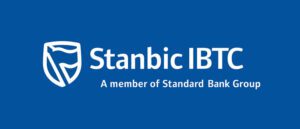


World Bank disburses $751.88m loan to Nigeria
By Esther Agbo
The World Bank has disbursed $751.88 million to Nigeria as part of a recently approved $1.5 billion loan.
This disbursement falls under the Nigeria Reforms for Economic Stabilisation to Enable Transformation (RESET) Development Policy Financing Program (DPF) project.
The loan is part of a larger $2.25 billion package approved by the World Bank on June 13, 2024, aimed at supporting reforms in Nigeria.
The $1.5 billion loan includes two separate agreements, a $750 million International Development Association (IDA) credit and a $750 million International Bank for Reconstruction and Development (IBRD) loan.
Of the total amount, $750 million from the IDA credit and $1.88 million from the IBRD loan have been disbursed, leaving an undisbursed balance of $748.13 million.
The RESET project is designed to support significant economic reforms aligned with Nigeria’s stabilisation and recovery priorities.
The project is structured around four key results across two pillars which includes, Increasing fiscal oil revenues from 1.8 percent of GDP in 2022 to 2.7 per cent by 2025, boosting non-oil fiscal revenues from 5.3 per cent to 7.3 per cent over the same period, expanding social safety nets to assist 67 million vulnerable Nigerians and raising the import value of previously banned products from $11.3 million to $54.6 million by 2025.
The Federal Ministry of Finance (MOF) is responsible for implementing these reforms, with oversight from the World Bank. The World Bank will work alongside the Central Bank of Nigeria (CBN) and the Ministry of Humanitarian Affairs and Poverty Alleviation (MHAPA) to monitor and assess the progress and impact of these reforms.
As per the financing agreement documents for the loan, Nigeria must fulfil specific conditions to receive the full amount. Both the IDA Credit and IBRD loan agreements stipulate identical requirements, according to documents obtained from the World Bank.
The required actions under this loan project include the Presidential Executive Order, i.e all fiscal transfers to the Federal Government, including those from crude oil sales and gasoline imports, must be executed at the prevailing market exchange rate within a specified implementation period.
Second is value-added tax (VAT) Reforms, which is submission of a draft bill to the National Assembly to progressively increase the VAT rate to at least 12.5 percent by 2026 and allow input tax credits for capital and services.
Lastly, National Social Investment Program Bill, submission of a revised bill to the National Assembly mandating the use of the national social registry as the primary targeting tool for social investment programs.
Nigeria has made progress in some areas, such as increasing gasoline prices and beginning cash transfer programs. Continuous monitoring and adherence to the agreed reforms are necessary to ensure the availability of funds.
The World Bank team will closely monitor Nigeria’s compliance with these conditions to ensure that the loan’s objectives are met efficiently and effectively.



